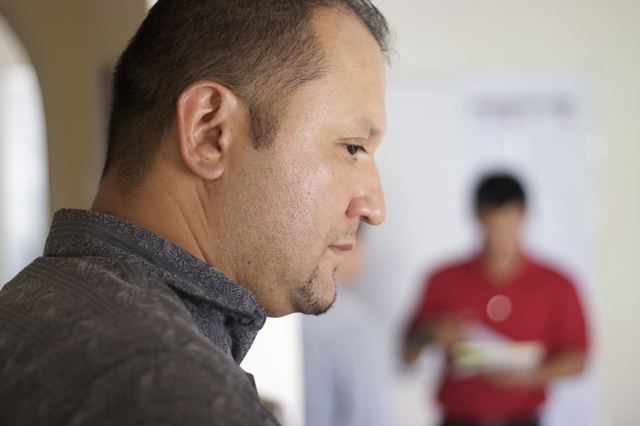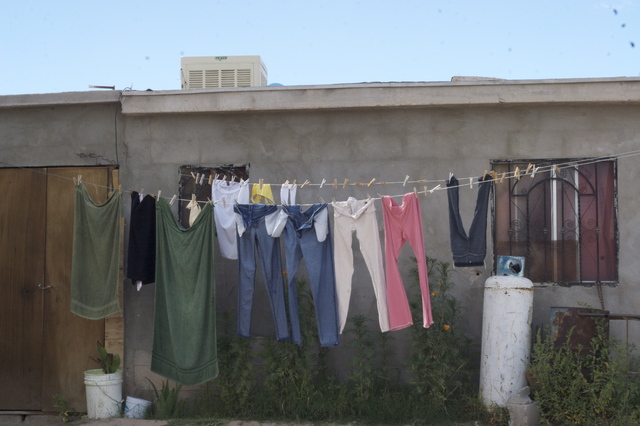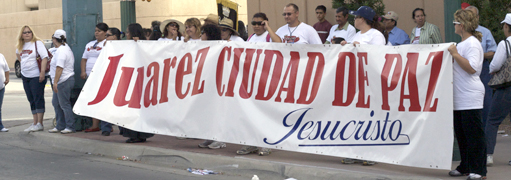The Secret School: A Teacher Struggles To Educate In Juárez
A Teacher Struggles To Educate In Juárez, Where Extortion Is The Cost Of Doing Business


Trinidad Vasquez

A political poster for Juárez' July 5 elections

Municipal police armed with assault rifles on patrol

A man tries to secure a truckload branches.

A donkey hauls a man down the highway.

A village in east Juárez

Stray dogs relax in the shade.

Clothes dry outside a house.

Vasquez says young boys hide out this abandoned building and sniff paint thinner.





